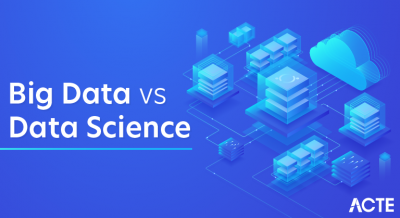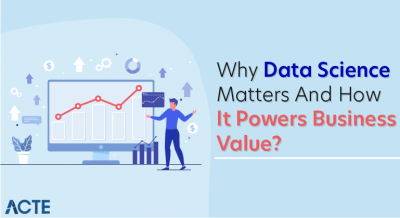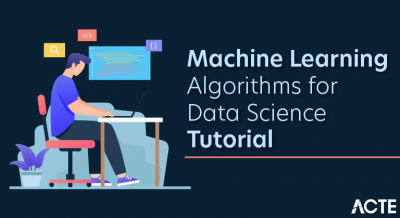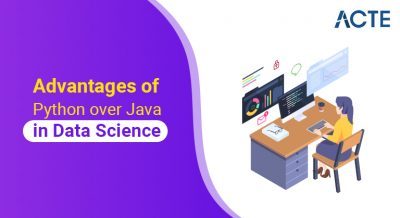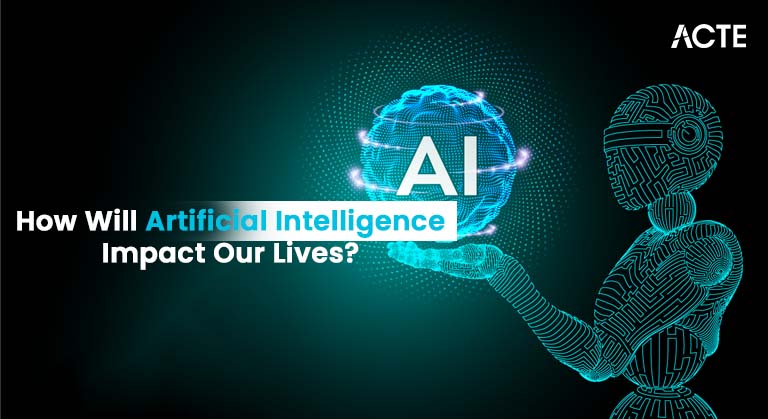
- Understanding AI
- AI in Daily Life
- AI in Education
- AI in Healthcare
- AI in Business
- Smart Homes and IoT
- Ethical Considerations
- What Lies Ahead
Understanding AI
Artificial Intelligence (AI) refers to the creation of computer systems that can perform tasks traditionally requiring human intelligence. These tasks include learning from data, reasoning to make decisions, solving problems, perceiving environments, and understanding natural language. AI encompasses a broad spectrum of technologies, from simple rule-based systems that follow predefined instructions to advanced deep learning neural networks capable of analyzing massive datasets and making complex predictions. Since its beginnings in the mid-20th century, AI has undergone significant transformations. Early AI relied heavily on symbolic logic and rule-based programming, where knowledge was explicitly coded by experts an important historical perspective often covered in Data Science Training. Over time, advances in algorithms, particularly machine learning, enabled AI systems to learn patterns directly from data rather than relying solely on preprogrammed rules. The introduction of deep learning, inspired by the structure of the human brain, has further accelerated AI’s capabilities by enabling machines to process unstructured data such as images, speech, and text with remarkable accuracy. The rapid growth of AI is fueled by three main factors: increasing computing power, the explosion of data generated from digital sources, and continual improvements in algorithms. These elements have combined to make AI technologies pervasive in everyday life, powering applications such as voice assistants like Siri and Alexa, autonomous vehicles, recommendation systems, fraud detection, and complex data analytics. As AI continues to advance, it promises to revolutionize industries, enhance productivity, and create new opportunities, while also raising important ethical and societal considerations.
Do You Want to Learn More About Data Science? Get Info From Our Data Science Course Training Today!
AI in Daily Life
Artificial Intelligence (AI) has become an integral part of daily life, influencing how people interact with technology, communicate, and make decisions. From personal assistants like Siri, Alexa, and Google Assistant to recommendation systems on streaming platforms such as Netflix and Spotify, AI helps tailor experiences to individual preferences, making everyday tasks more convenient and efficient. These AI-powered assistants use natural language processing to understand voice commands, answer questions, set reminders, and even control smart home devices, enhancing user convenience and accessibility, illustrating key concepts in Data Mining Vs. Machine Learning. AI also plays a significant role in communication through features like spam filters in email, predictive text on smartphones, and real-time language translation apps. Social media platforms use AI algorithms to curate news feeds, identify content trends, and even detect harmful or inappropriate content, helping create safer and more engaging online environments. In the field of transportation, AI contributes to navigation apps like Google Maps and Waze by analyzing traffic patterns and providing real-time route recommendations, saving time and reducing congestion. Autonomous vehicles, though still emerging, rely heavily on AI to interpret sensor data and make driving decisions.
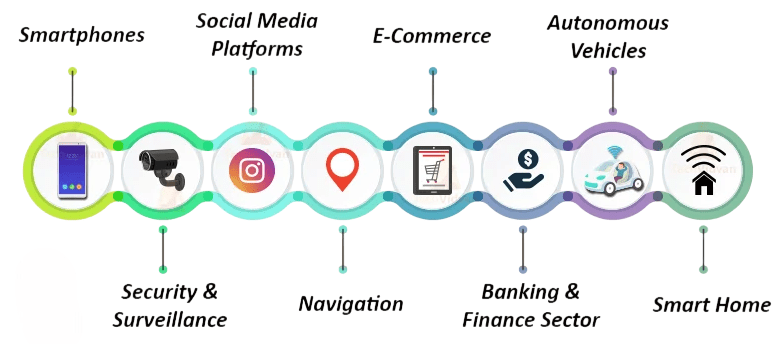
Healthcare is another area where AI is making daily impacts, assisting in early diagnosis, personalized treatment plans, and remote patient monitoring. AI-powered chatbots provide quick medical advice and support, improving access to healthcare services. Overall, AI’s integration into daily life streamlines routine activities, improves decision-making, and opens new possibilities for innovation. As AI continues to evolve, its role is expected to grow, further shaping how individuals live, work, and interact with technology.
AI in Education
- Personalized Learning: AI-powered platforms analyze student data to tailor learning paths based on individual strengths, weaknesses, and learning styles. This ensures that each student progresses at their own pace with customized content and support.
- Intelligent Tutoring Systems: Virtual tutors use AI to provide instant feedback and explanations. These systems simulate one-on-one tutoring, helping students master complex topics without needing continuous human supervision.
- Automation of Administrative Tasks: AI tools can automate grading, attendance tracking, and scheduling. This reduces teachers’ workload and allows them to focus more on instruction and student engagement, highlighting some Advantages & Disadvantages of Python programming language used in these tools.
- Predictive Analytics: AI analyzes performance data to identify students at risk of falling behind. Educators can use this information to intervene early with additional support or personalized learning plans.
- Language Translation and Accessibility: AI-powered translation tools and speech recognition systems help break down language barriers and support students with disabilities, making education more inclusive.
- Curriculum Development: AI can assess the effectiveness of teaching materials and suggest improvements based on student outcomes and engagement levels, allowing for data-driven curriculum design.
- Lifelong Learning and Skill Development: AI-driven platforms recommend learning resources and courses aligned with career goals, promoting continuous learning and skill advancement for students and professionals.
- Medical Imaging and Diagnosis: AI algorithms can analyze X-rays, MRIs, and CT scans with high accuracy to detect diseases such as cancer, fractures, and neurological disorders. These tools help radiologists make faster and more accurate diagnoses.
- Predictive Analytics: AI models predict patient risks by analyzing medical history, lifestyle data, and genetic information, a process commonly explored in Data Science Training. This helps in identifying individuals at risk of developing chronic conditions like diabetes or heart disease, enabling early interventions.
- Personalized Treatment Plans: AI supports the creation of personalized treatment strategies by analyzing a patient’s genetic makeup, medical records, and real-time health data. This approach improves treatment effectiveness and minimizes side effects.
- Virtual Health Assistants: Chatbots and AI-driven virtual assistants provide patients with instant responses to health-related queries, appointment scheduling, medication reminders, and symptom checking, improving access to care.
- Drug Discovery and Development: AI accelerates drug research by predicting how different compounds will interact with the body. This shortens development timelines and reduces costs in pharmaceutical research.
- Operational Efficiency: AI automates administrative tasks such as billing, medical coding, and data entry. This reduces human error, lowers operational costs, and frees up staff to focus on patient care.
- Remote Monitoring and Telemedicine: AI-powered wearable devices track vital signs and alert providers to anomalies. Combined with telehealth platforms, they support continuous care and reduce hospital visits.
- Automation and Convenience: Smart home systems automate routine tasks such as lighting, heating, and appliance control. Users can schedule or trigger actions remotely, making daily life more efficient and comfortable.
- Voice and App Control: Smart assistants like Amazon Alexa, Google Assistant, and Apple Siri allow voice control of devices. Mobile apps also let homeowners monitor and manage their homes from anywhere.
- Energy Efficiency: Smart thermostats, lighting, and appliances optimize energy use by learning habits and adjusting settings accordingly. This leads to lower utility bills and reduced environmental impact, similar to how understanding What is Normality Test in Minitab helps ensure accurate data analysis.
- Security and Surveillance: IoT-enabled cameras, motion sensors, and smart locks enhance home security. These systems offer real-time alerts, remote monitoring, and even facial recognition features.
- Health and Well-being: Smart homes can include devices that monitor air quality, humidity, or detect harmful gases. Some systems even track sleep or movement patterns to promote health and safety, especially for elderly residents.
- Interconnectivity: A major strength of smart homes is the seamless communication between devices. Interconnected systems can perform coordinated actions, such as turning off lights and locking doors when no one is home.
- Data and Privacy Concerns: While smart homes offer convenience, they also raise concerns about data security and privacy. Protecting user data and ensuring secure networks is essential for safe adoption.
Would You Like to Know More About Data Science? Sign Up For Our Data Science Course Training Now!
AI in Healthcare
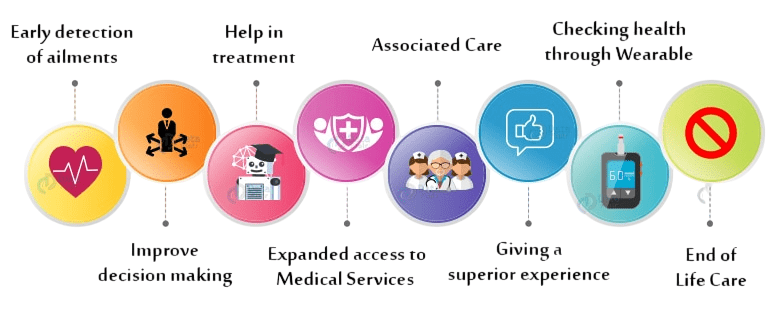
AI in Business
Artificial Intelligence (AI) is revolutionizing the business landscape by enabling organizations to improve efficiency, enhance customer experiences, and drive innovation. Businesses across industries are leveraging AI technologies such as machine learning, natural language processing, and computer vision to automate routine tasks, analyze large datasets, and make smarter decisions. For example, AI-powered chatbots handle customer service inquiries 24/7, providing quick responses and freeing human agents to focus on more complex issues. This improves customer satisfaction while reducing operational costs. In marketing, AI helps companies personalize campaigns by analyzing customer behavior and preferences, resulting in targeted promotions that boost engagement and sales. Predictive analytics powered by AI enables businesses to forecast demand, optimize inventory, and streamline supply chain operations, topics covered in Top Data Science Books for Beginners & Advanced Data Scientist. This leads to cost savings and more efficient resource management. AI also enhances decision-making through advanced data analytics. By processing vast amounts of structured and unstructured data, AI tools uncover insights that humans might miss, allowing businesses to identify new opportunities, mitigate risks, and optimize strategies. In finance, AI algorithms detect fraudulent activities and automate credit scoring, improving security and accuracy. Moreover, AI is transforming product development and innovation. Companies use AI to design smarter products, optimize manufacturing processes, and create personalized experiences. Industries such as healthcare, automotive, retail, and finance are early adopters of AI, benefiting from improved operational efficiency and competitive advantage. As AI technology continues to advance, businesses that embrace AI-driven solutions will be better positioned to adapt to changing markets, enhance customer value, and achieve sustainable growth.
Looking to Master Data Science? Discover the Data Science Masters Course Available at ACTE Now!
Smart Homes and IoT
Ethical Considerations
As Artificial Intelligence (AI) becomes more widespread in daily life and business, ethical considerations are increasingly important. The use of AI raises questions about fairness, transparency, privacy, accountability, and the risk of unintended consequences. One key concern is bias in AI algorithms. Since AI models learn from existing data, any biases in the training data can lead to unfair or discriminatory decisions. This can affect areas like hiring, lending, law enforcement, and more. To address bias, it is essential to carefully select diverse training data, monitor models regularly, and implement corrective measures. Transparency is another critical ethical issue. Many AI systems, especially complex ones like deep learning models, operate in ways that are difficult for humans to fully understand, which is one of the Reasons You Should Learn R, Python, & Hadoop. This lack of explainability can reduce trust in AI decisions and make it hard to audit or challenge those decisions. Promoting transparency involves developing models that are easier to interpret and clearly communicating how AI systems make decisions. Privacy is also a major concern. AI often processes large amounts of sensitive personal data, so protecting this information requires strong security practices, clear consent policies, and compliance with data protection regulations such as GDPR and CCPA. Organizations must balance the benefits of AI insights with respecting individuals’ privacy rights. Finally, accountability is important to ensure there is clarity about who is responsible if AI systems cause harm or make mistakes. Establishing legal and ethical guidelines for AI governance is necessary for responsible use. In conclusion, addressing these ethical challenges is vital to ensure AI is used fairly and safely, building trust and promoting positive outcomes.
Are You Preparing for Data Science Jobs? Check Out ACTE’s Data Science Interview Questions & Answer to Boost Your Preparation!
What Lies Ahead
The future of Artificial Intelligence (AI) promises significant advancements that will further transform industries, economies, and everyday life. As computing power continues to increase and algorithms become more sophisticated, AI systems are expected to gain greater capabilities in understanding context, reasoning, and creativity. Emerging fields such as explainable AI, which aims to make machine decisions more transparent, and federated learning, which enhances privacy by training models without centralized data, are poised to address current challenges around trust and ethics. AI will increasingly integrate with other technologies such as the Internet of Things (IoT), 5G networks, and edge computing to enable smarter, faster, and more connected environments. For example, smart cities will use AI-driven data analytics to optimize traffic flows, energy use, and public safety. In healthcare, AI is expected to advance personalized medicine by analyzing genetic data and real-time patient monitoring to deliver tailored treatments, highlighting the importance of Data Science Training. Automation powered by AI will continue to reshape the workforce, automating repetitive tasks while creating new jobs that require human-AI collaboration skills. Education and training programs will evolve to prepare people for this changing landscape, emphasizing adaptability and lifelong learning. However, with these opportunities come challenges, including ethical concerns, data privacy, and the need for regulation to prevent misuse. Policymakers, businesses, and technologists must work together to create frameworks that ensure AI benefits society while minimizing risks. In summary, AI’s future is full of potential to drive innovation and improve quality of life. By focusing on responsible development and inclusive growth, society can harness AI’s power to build a better, more efficient, and equitable world.


